Filter presses play a vital role in industrial production, they are used to separate solid particles from liquids in a wide range of applications including chemicals, food processing, mining, and environmental protection. However, one often overlooked but critical component is filter press cloths, which play a vital role in the filtration process.
What is filter press cloth?
Filter cloth for filter press is one of the key components used in filter press. It is a specially designed cloth usually made of high-quality fiber materials such as polypropylene, nylon, polyester, and so on. The filter cloth is installed between the filter plates of the filter press and is used to separate solid particles from liquids during the filtration process.
The filter cloth of a filter press has a porous structure that allows liquid to pass through and blocks solid particles. During the operation of the filter press, a solid-liquid mixture is injected into the filter chamber, and pressure is then applied through the hydraulic system of the filter press to allow the liquid to pass through the filter cloth while the solid particles are retained on the cloth to form a filter cake. Over time, as the solid particles accumulate on the filter cloth, the cake layer thickens until the desired solids content and cake thickness are achieved.
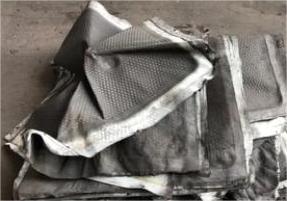
Function Of Filter Press Cloths
Filter press cloth plays a vital role and function in the filter press, which mainly includes the following aspects:
- Solid-liquid separation: When the mixture passes through the filter press, the filter cloth intercepts the solid particles on the surface of the cloth and allows the liquid to flow out through the pores of the cloth or the interstices of the fabric, thus realizing solid-liquid separation.
- Formation of Filter Cake: Filter cloths also help in the formation of filter cake during the filtration process. The formation of filter cake helps to further filter the liquid and can improve the filtration efficiency and the quality of solids collected.
- Supporting and protecting: It prevents solid particles from directly contacting the filter plate, which extends the service life of the filter plate and reduces damage to the equipment and maintenance costs.
- Adjustment of filtration speed: The choice of filter cloth can affect the filtration speed and the quality of filter cake. The filtration speed can be adjusted as needed to adapt to different process requirements and materials to be processed.
- Easy to clean and replace: Filter cloths are usually easy to clean and replace, which helps to maintain the efficient operation and long-term stability of the filter press.
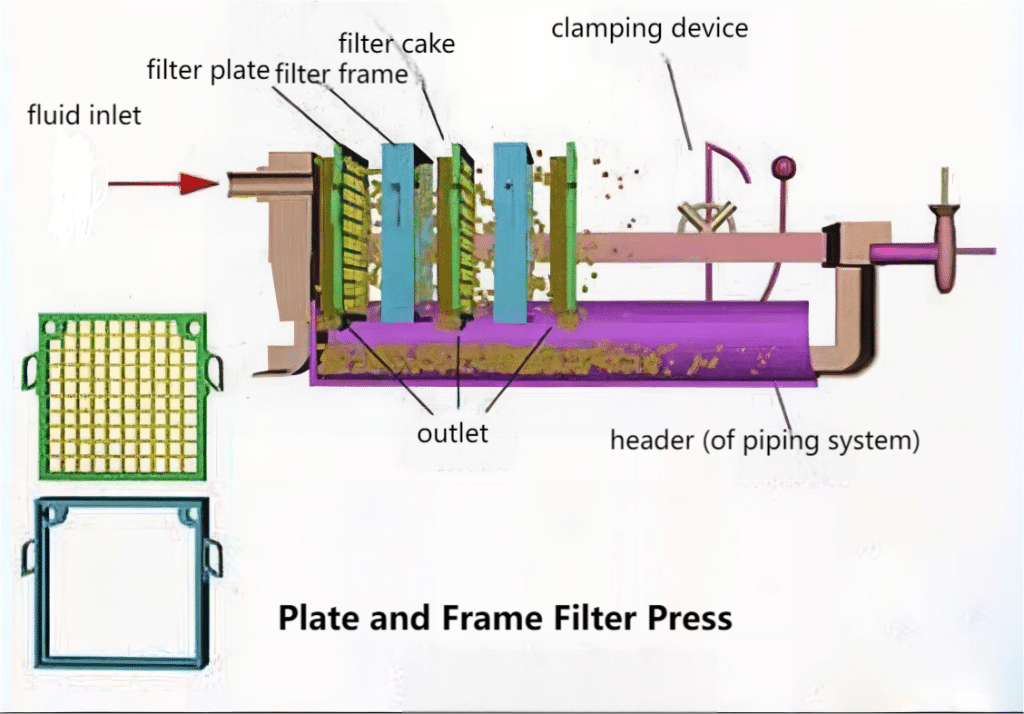
Types of Filter Press Cloths
- Polypropylene Filter Cloth: Polypropylene filter cloth is commonly used for handling corrosive media such as chemicals, sewage, and wastewater. It is resistant to corrosion, abrasion and high temperatures, and is suitable for industrial applications that require a high degree of durability.
- Nylon Filter Cloth: Nylon Filter Cloth has high tensile strength and abrasion resistance, and is suitable for handling viscous liquids, slurries and media with small particles. It is usually used in mining, food processing and pharmaceutical industries.
- Polyester Filter Cloth: Polyester Filter Cloth has excellent abrasion resistance and tensile resistance, and is suitable for handling medium viscosity and solid content media. It is commonly used in chemical industry, mining industry, high-temperature environmental protection, and other fields.
- Polypropylene threaded filter cloth: Polypropylene threaded filter cloth has a special thread structure, which can effectively improve the filtration efficiency and solid-liquid separation performance, and is suitable for dealing with fine particles and high concentration of solid-liquid mixtures.
- Polyester threaded filter cloth: similar to the polypropylene threaded filter cloth, polyester threaded filter cloth also has a special threaded structure, suitable for dealing with high temperature and high pressure media, with good abrasion resistance and chemical corrosion resistance.
- Special material filter cloth: There are some special materials of filter cloth, such as fluorine plastic, polytetrafluoroethylene (PTFE), etc., with excellent corrosion resistance and high temperature resistance, suitable for dealing with strong corrosive media and high temperature media.
Application Areas of Filter Press Cloths
Chemical Industry: In chemical production, filter cloths are used to filter suspensions, and separate solid particles and dissolved substances to extract pure chemical products.
Food Processing: Filter cloths are commonly used in clarification, filtration, and separation steps in food processing, for example in winemaking, juice making, clarification of liquid food, etc. Filter cloths are used to remove suspended matter, impurities, and microorganisms to improve product quality and hygiene safety.
Mining industry: Filter cloths are commonly used in slurry treatment, tailings treatment, and tailings dewatering.
Environmental Engineering: Widely used in effluent treatment, sludge dewatering, flue gas desulfurization, and other fields. Filter cloth can help to remove suspended solids, pollutants, and organic matter in wastewater, purify the water quality, and meet the discharge standards.
Pharmaceutical industry: Usually used in solid-liquid separation, preparation clarification, and drug recovery. Filter cloth can help remove impurities and solid particles in drugs.
Filter Presses Suitable For Filter Cloth
Plate and frame filter press: The plate and frame filter press is the most common type of filter press and is suitable for a variety of solid-liquid separation and filtration operations. It consists of a series of filter plates and filter cloths that separate solid-liquid mixtures by filtration under applied pressure. Plate and frame filter presses typically have a large filtration area and the flexibility to accommodate different filter cloth types and processing media.
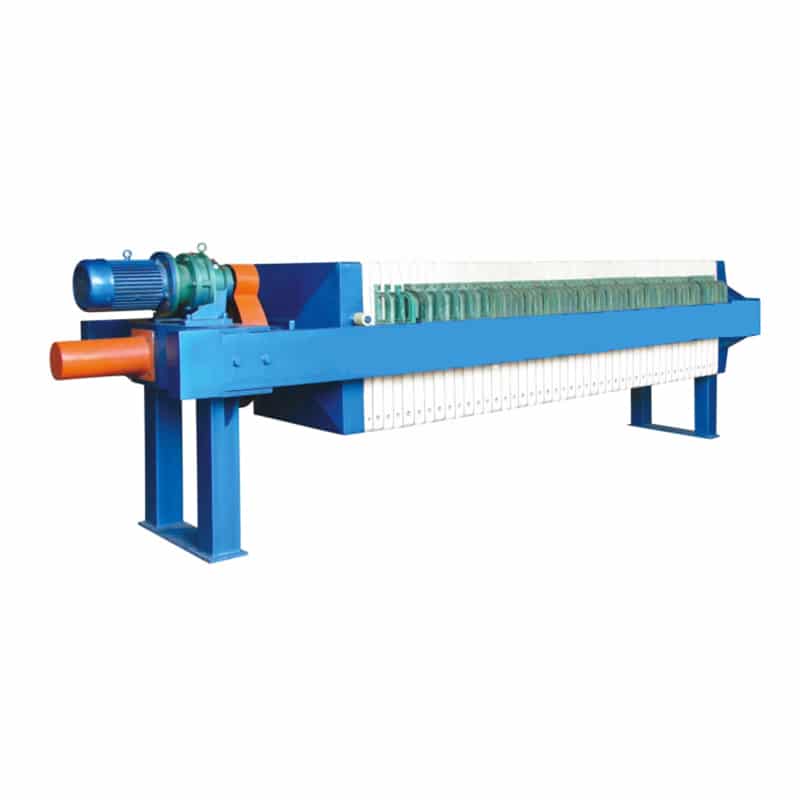
Membrane filter press: Membrane Filter Press adds a flexible membrane on the filter plate based on Plate and Frame Filter Press, which can change the shape of the membrane by applying pressure to realize more efficient solid-liquid separation. Membrane filter presses are suitable for application scenarios that require high filtration efficiency and solid-liquid separation performance, such as chemical, pharmaceutical, and food processing.
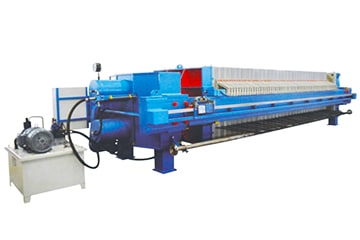
Screw filter press: Screw Filter Press utilizes a rotating screw to push the solid-liquid mixture into the filtration area and then separates the liquid by pressure, which is suitable for treating thickened sludge, wastewater treatment, and other processes. Screw-type filter presses are usually equipped with filter cloths to realize solid-liquid separation and filtration operations.
Belt filter press: Belt Filter Press adopts a filter belt as the filtering medium, and brings the solid-liquid mixture from the slurry area to the filtration area through the movement of conveyor belt, and then separates the liquid by applying pressure. Belt filter presses are suitable for processing large quantities of solid-liquid mixtures and allow flexible adjustment of filter cloth tension and filtration efficiency.
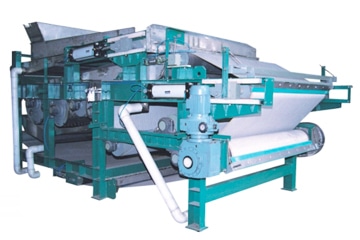
Maintenance and Care of Filter Cloth
- Regular cleaning
- Avoid mechanical damage
- Regularly replace
- Keep dry
- Periodic inspection
Whether in the chemical industry, food processing, mining or environmental engineering, filter cloths play an important role and provide key solid-liquid separation solutions for industrial production.
KUOSI is a manufacturer for the water treatment industry, offering filter presses, screw press, air flotation systems and ozone generators for sterilization. If you have any questions or need more information about filter cloths or other filter press accessories, please contact us to develop a proposal.
